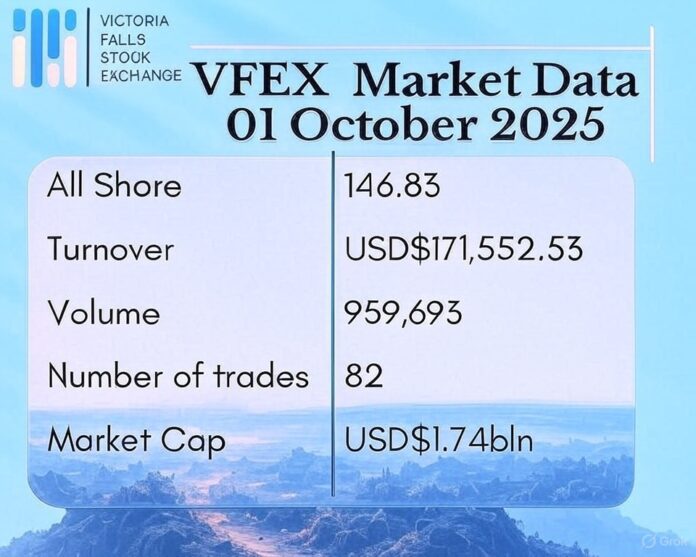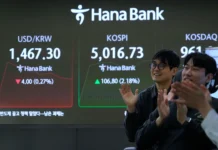HARARE – Zimbabwe’s Victoria Falls Stock Exchange (VFEX) is increasingly positioning itself as a quasi-offshore equity market, providing investors with a hard-currency platform at a time when the country is pushing for de-dollarisation of its economy.
Launched in 2020, VFEX trades exclusively in foreign currencies, mainly the US dollar, and offers a safe haven for both domestic and foreign investors wary of Zimbabwe’s volatile local unit. Analysts say the bourse plays a dual role: attracting foreign capital inflows while acting as a bridge between Zimbabwe’s currency reforms and global markets.
“In practice, VFEX functions almost like an offshore equity market within Zimbabwe’s borders,” a Harare-based market analyst told The Zimbabwe Mail.
“It provides international investors with an entry point into Zimbabwean assets without the direct risk exposure of the local currency, while allowing listed companies to raise capital in hard currency.”
This model mirrors international financial hubs such as London and Singapore, where offshore markets developed to facilitate foreign investment flows outside the constraints of local monetary regimes. Just as London became a centre for Eurodollar trading in the post-war era, and Singapore evolved into a major offshore hub for Asian capital, Zimbabwe is betting that VFEX can serve as a strategic platform to anchor foreign portfolio investment.
Companies such as SeedCo International, Simbisa Brands and Padenga Holdings have already migrated or listed on VFEX to access USD-denominated capital and to shield shareholders from the risks of Zimbabwe’s weakening local currency.
However, challenges remain. Despite tax incentives — including lower capital gains tax and reduced repatriation restrictions — liquidity on the VFEX remains thin, and trading volumes are yet to reach levels that could anchor broader financial stability.
Economists argue that while VFEX is a step in the right direction, it is not yet a substitute for a credible macroeconomic policy framework. “VFEX works because it is offshore in character,” an independent economist said. “But for de-dollarisation to succeed, Zimbabwe still needs confidence in its local currency, strong reserves, and consistent policy signals.”
With government projecting deeper reforms and investors watching the country’s currency trajectory closely, VFEX remains a crucial experiment: can Zimbabwe replicate the offshore success of financial hubs like London and Singapore in the heart of Victoria Falls?










